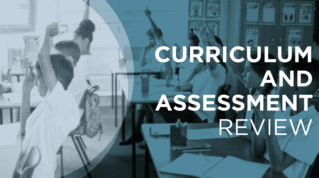The government has this morning published its call for evidence for its wide-ranging review of the curriculum.
We already have an explainer of how the review will work (you can read that here), so the below is more specific to the call for evidence.
1. It’s an 8-week consultation
The call for evidence opens today and runs until November 22. That’s eight weeks to have your say. You can fill in the consultation here.
The review has “deliberately kept questions as open as possible, and welcome responses from all those interested: young people and their parents, teachers, lecturers, education leaders, subject experts, researchers, employers and others”.
2. Reports next year, but could be waiting for changes
An interim report will be published in “early” 2025. It will “set out the review’s interim findings and confirm key areas for further work”.
A final report and recommendations will come in Autumn 2025.
But what happens after that? Review chair Becky Francis suggested it could be a mixed bag. Some more straight forward changes, for instance, could be put forward in the first report, and brought in the following year. Government has committed to give schools a year notice for any major curriculum and assessment reforms.
However she did say any bigger and more complicated reforms could require further reviews or consultations, and may not even happen in this parliament, which ends in 2029.
And, as Francis has previously said, where “new content is added, existing content will need to be removed to make space”.
3. SEND, forgotten third are priorities …
The review makes clear there are lots of good things about the current system. It’s evolution, not revolution. Francis described the review as a “refresh”.
However, the review states there are “parts of the system that require improvement” – particularly so for pupils with additional needs and those from poorer backgrounds.
“The reality is that we continue to fail the third of our young people who do not achieve five GCSEs at grade 4 or above age 16, a disproportionate number of whom are from socioeconomically disadvantaged backgrounds,” Francis said.
“There is therefore a need to review the existing curriculum and assessment frameworks to ensure that they are fit for purpose for the next quarter of a century.
“The Review will take stock of successes, weaknesses and opportunities, to provide a curriculum that exemplifies excellence; secures the knowledge and skills young people will need in their future lives; enriches and motivates learning; and adapts to the changing needs of the environment they will navigate.”
4. … ‘reducing’ exams burden on the cards …
The review also lists some other potential outcomes. That includes to
– “Alleviate some of the pressure and constraints on learners and educators”
– “Reduce the assessment burden where feasible and appropriate, while continuing to recognise the socially progressive benefits of public examinations”. Views are being sought, for instance, on whether the “overall volume of assessments impacts the wellbeing and ability of all young people to progress to the next stage of their education”.
– “Support professional expertise; address longstanding challenges in providing meaningful, rigorous and high-value pathways for all students at 16 to 19”
– “Make sure the curriculum is inclusive and accessible for all young people and address injustices and unintended consequences”
The review may also offer commentary on the impact of accountability on the curriculum and assessment system.
“It may wish to recommend how changes to curriculum and assessment should interact with accountability measures.”
5. … but wary of ‘unintended consequences’
Francis told Schools Week one of the biggest challenges would be to ensure the review reforms “do no harm. We know how easy it is to precipitate unintended consequences, particularly around accountability and performance measures.
“So that’s something that I have to tread very carefully with.”
The Review document states it will seek to “identify the most significant and pressing issues facing curriculum and assessment”, but “will focus on addressing these without destabilising the system, making changes where things are working well, or where there is insufficient evidence to warrant change”.
“In short, we seek to bring about evolution, not revolution.”
The review will also not seek to “remove well respected and valued qualifications like A-levels, GCSEs and T-levels”.
6. Subject declines ‘more nuanced than we thought’
Alongside the call for evidence, the government has published a study of curriculum subject trends over time to “aid our evidence-led conversation as we consider curriculum breadth and balance”.
The blog stats it shows a “more nuanced picture than is often assumed”. Trends include
- “Significantly higher numbers” of youngsters taking maths A-level
- A “slight” decline in arts subjects at A-level, but more significant declines in other areas such as English
- While art and design “continues to thrive” at GCSE, other arts subjects had declined – notably drama, and to a lesser extent music. But design and technology “stands out as the subject that has fared worst over time”
- However, any conclusions are “complicated” by vocational qualifications – taken by 43 per cent of youngsters at key stage 4. For instance, while the proportion of pupils taking music GCSE fell by 7 per cent in 2016, to 5 per cent in 2022, there has been an increase in entries to technical awards in music from 1 per cent to 3 per cent over the same period. This was mirrored in drama, media and PE too.
- But citizenship continues to have “very low uptake”, and computing has seen a “significant reduction” since the computing GCSE was introduced and alternative qualifications withdrawn, especially for girls
- Meanwhile, looking at teaching time per subject shows it has expanded for maths and English, but there is pressure on other subjects like PE, sex education and citizenship – which have declined.
















Your thoughts